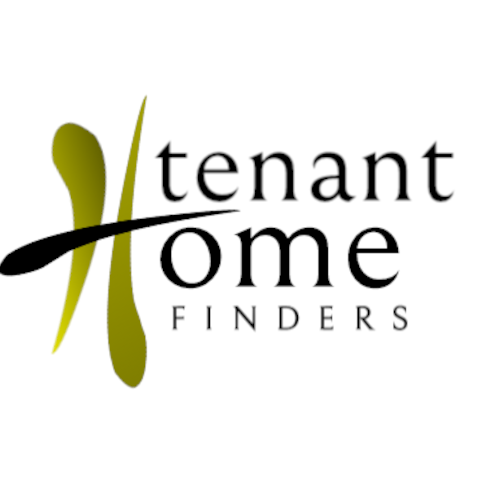Finding the right office space can be a daunting task. Your choice of office space can significantly impact the success and efficiency of your business. It’s not just about finding a space within your budget; it’s about finding a space that meets your specific business needs. Here are five essential tips to help you find a suitable office space.
1. Ensure the Space Meets Your Business Needs
The first and most crucial factor is to find a space that suits the unique needs of your business. It’s not just about how beautifully crafted or affordable the building is; it’s about functionality.
Tips for Assessing Your Needs:
· Space Requirements: Determine how much space you need. Consider the number of employees, the type of equipment you use, and the space required for operations. If your business involves client meetings, ensure there’s enough room for a comfortable meeting area.
· Future Growth: Think about your future growth plans. Choose a space that can accommodate your business as it grows. It’s often more cost-effective to lease a slightly larger space than to move frequently.
· Customization: Check if the space can be customized to fit your specific needs. For instance, if you’re in IT, you might need a layout with good ventilation and plenty of power outlets.
Example: A tech startup might need an open-plan space with areas for collaborative work, while a law firm might require separate offices for privacy and confidentiality.
Additional Consideration: Consider the amenities provided. Does the building offer facilities like conference rooms, a kitchen, or a lounge area that can enhance your business operations?
2. Choose the Right Location: Location, Location, Location
The location of your office space is vital to the success and survival of your business. It affects everything from employee satisfaction to client accessibility.
Tips for Choosing the Right Location:
· Accessibility: Ensure the location is easily accessible by public transport and has ample parking for employees and clients. This convenience can greatly impact productivity and client satisfaction.
· Proximity to Clients: Choose a location that is close to your key clients or target market. This proximity can enhance client relationships and make your business more attractive to potential clients.
· Neighborhood: Consider the safety and reputation of the neighborhood. A secure, well-regarded area can improve employee morale and client perceptions.
Example: A financial consulting firm might choose a location in the business district to be close to major clients and other financial institutions, while a creative agency might prefer a trendy area that attracts creative talent.
Additional Consideration: Look into the local amenities. Are there restaurants, cafes, and gyms nearby for your employees? The quality of the surrounding area can significantly affect employee satisfaction and productivity.
3. Budget Wisely: Affordability Matters
Affordability is a critical consideration when renting office space. It’s essential to work within your budget to avoid financial strain on your business.
Tips for Budgeting:
· Set a Budget: Determine how much you can afford to spend on rent each month without compromising other business expenses.
· Consider Additional Costs: Factor in additional costs such as utilities, maintenance, parking fees, and potential renovation costs. These can add up quickly and impact your overall budget.
· Negotiate Lease Terms: Don’t hesitate to negotiate the lease terms. You might be able to get a better deal or more favorable terms, such as a longer lease at a reduced rate.
Example: You find an office space that’s slightly above your budget but offers significant advantages in terms of location and amenities. By negotiating the lease terms, you might secure a lower rent or a rent-free period to offset the higher cost.
Additional Consideration: Consider the length of the lease. A longer lease might offer lower monthly rates, but it also means a longer commitment. Ensure the lease terms align with your business plans and financial projections.
4. Evaluate the Property Layout: Functionality First
The layout of the office space is another critical factor that can influence your business operations and employee productivity.
Tips for Evaluating Layout:
· Open vs. Closed Layout: Decide whether an open-plan or closed office layout is better suited to your business. An open layout fosters collaboration, while closed offices provide privacy.
· Natural Light: Ensure the office has plenty of natural light. It can improve employee mood and productivity.
· Ventilation and HVAC: Good ventilation and a reliable HVAC system are crucial, especially if you have a lot of electronic equipment that generates heat.
Example: A marketing agency might prefer an open layout to encourage team collaboration, while a medical office would need private examination rooms.
Additional Consideration: Consider the noise levels and acoustics. An office with poor sound insulation can be distracting and reduce productivity.
5. Consider Client Accessibility: Make It Easy for Clients to Find You
Finally, think about how easy it is for clients to find and visit your office. This can significantly impact client satisfaction and business growth.
Tips for Ensuring Client Accessibility:
· Visibility: Ensure your office is easy to find. Clear signage and a well-known location can make a big difference.
· Proximity to Transport Links: Ensure the office is close to major transport links, making it easy for clients to visit.
· Parking: Provide ample parking for clients. Lack of parking can be a significant deterrent.
Example: A consulting firm might choose an office in a high-rise building with prominent signage and easy access to public transport to enhance its professional image and client convenience.
Additional Consideration: Consider the accessibility for clients with disabilities. Ensure your office complies with local regulations and provides easy access for all clients.
Final Thoughts
Finding the perfect office space involves careful consideration of your business needs, location, budget, layout, and client accessibility. By taking the time to evaluate these factors thoroughly, you can find a space that supports your business’s growth and success.
Happy office hunting, and may you find the ideal space to propel your business forward!
